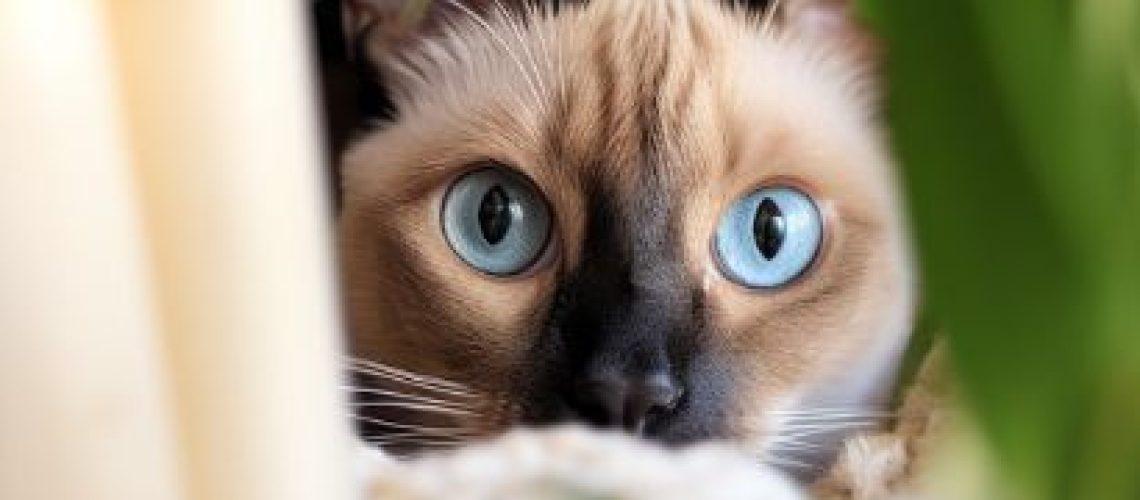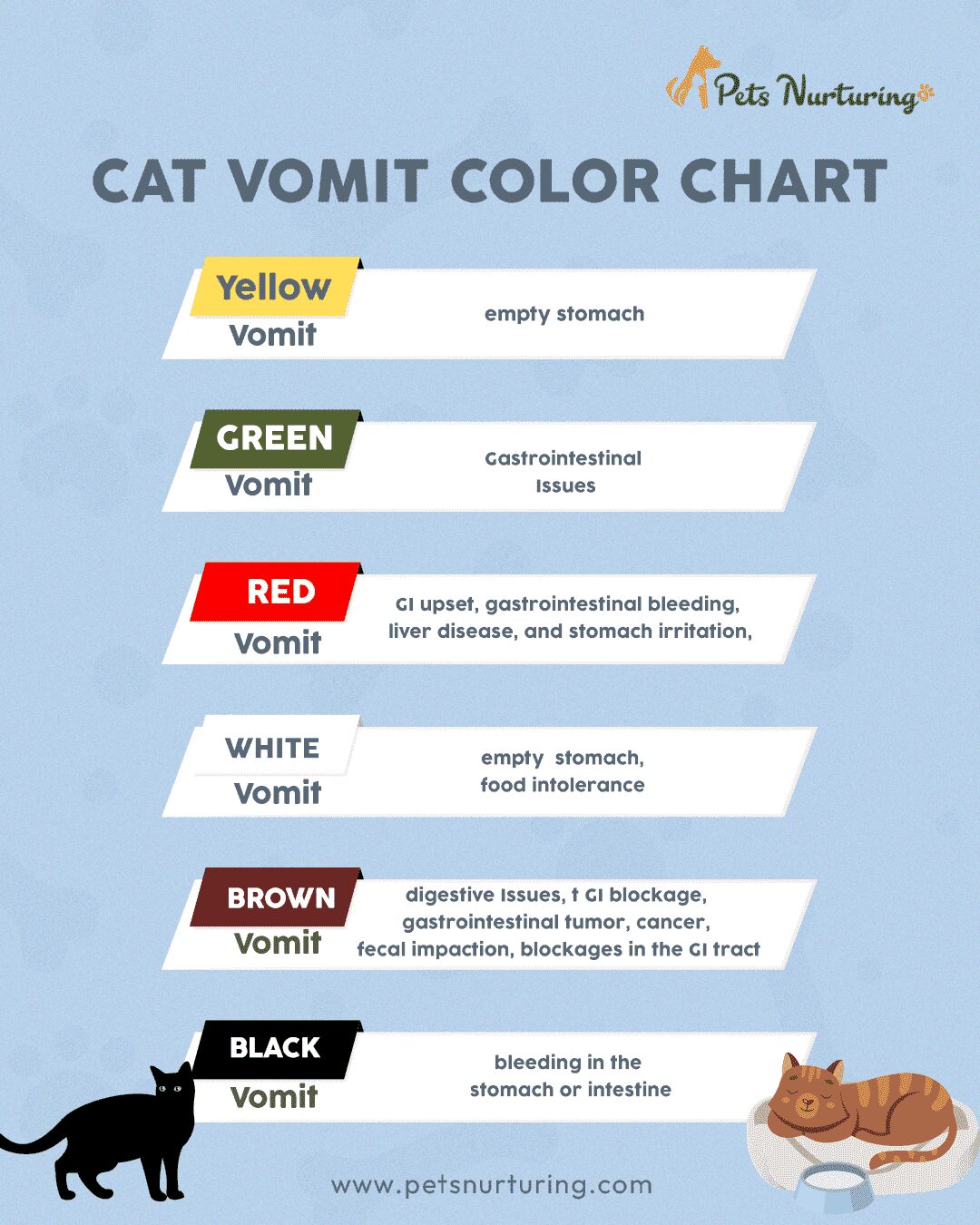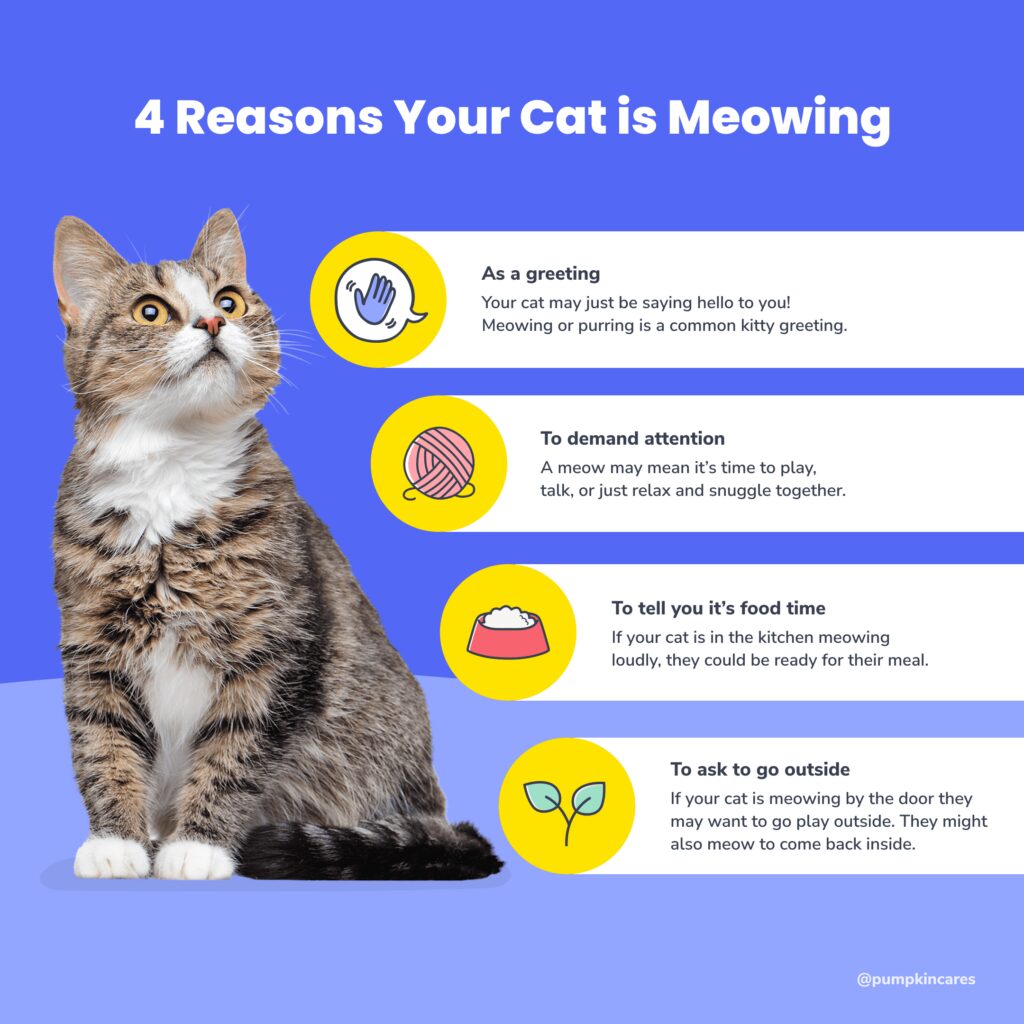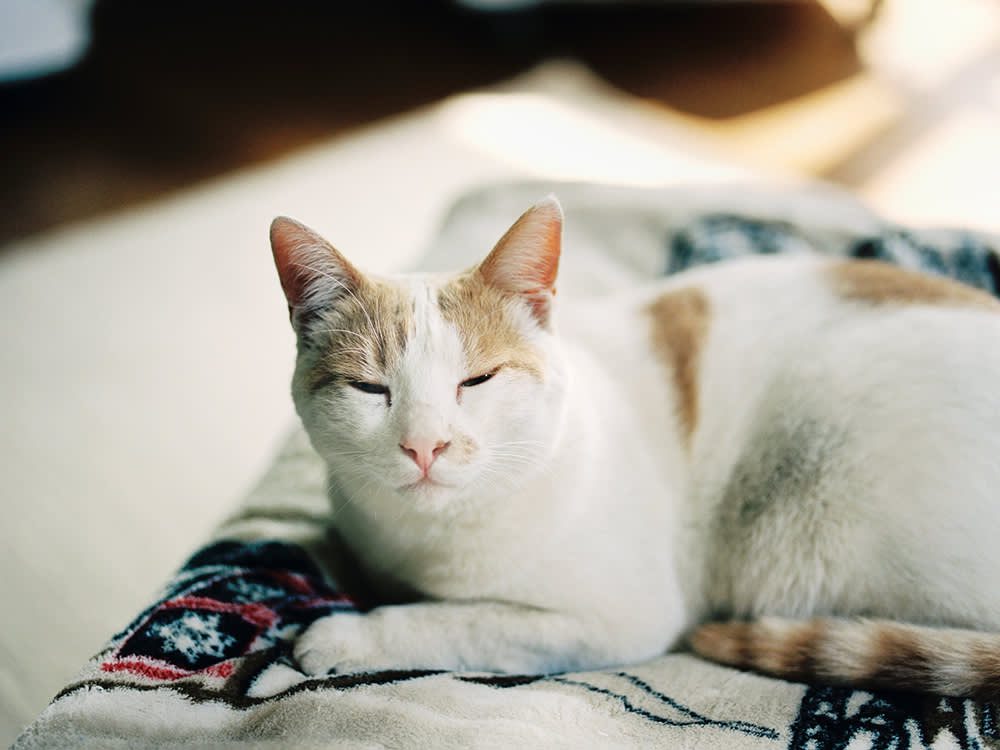Are you curious about why your furry feline friend seems to be lacking energy lately? Well, get ready to unravel the mystery of lethargy in cats! Exploring this topic will not only provide you with valuable insights into your cat's well-being but also equip you with the knowledge to take better care of them. Understanding the reasons behind their lack of energy is essential for ensuring their happiness and health. So, let's dive into this captivating subject and discover what could be causing your cat's lethargy. Get ready to become an expert in decoding your cat's behavior and giving them the love and attention they deserve. Let's embark on this fascinating journey together!
Key Takeaways:
- Lethargy in cats can be a sign of underlying health issues and should not be ignored.
- Common causes of lethargy in cats include infections, pain, stress, and certain medical conditions.
- If your cat is consistently lethargic or shows other concerning symptoms, it is important to seek veterinary care.
- Monitoring your cat's behavior and energy levels can help you identify any changes or signs of lethargy early on.
- Providing a stimulating environment, regular exercise, and a balanced diet can help prevent lethargy in cats.
Understanding Lethargy in Cats
Lethargy in cats refers to a state of extreme tiredness or lack of energy. When a cat is lethargic, it may appear sleepy, uninterested in its surroundings, and less active than usual. Lethargy can be a sign that something is not right with your cat's health or well-being.
As a cat owner, it is important to recognize signs of lethargy in your feline friend so that you can take appropriate action. Cats are known for their independent and low-maintenance nature, but they still rely on us to monitor their health. Identifying and addressing lethargy early on can help prevent any potential underlying issues from worsening.
Why It's Important to Recognize Lethargy in Cats
Recognizing lethargy in cats is crucial because it can be an indicator of an underlying health problem. Cats are masters at hiding signs of illness or pain, so when they display overt symptoms like lethargy, it usually means something is amiss.
By paying attention to changes in your cat's behavior and energy levels, you can catch potential health issues early on. This allows for prompt veterinary care and increases the chances of successful treatment. Remember, cats cannot communicate verbally about their discomfort or pain, so being observant of their behavior is key.
Signs of Lethargy in Cats: How to Tell if Your Cat is Feeling Tired
When trying to determine if your cat is feeling tired or lethargic, there are several signs to look out for:
- Your cat may sleep more than usual and seem less interested in playtime or activities that used to excite them.
- They may have a lack of appetite and show disinterest in their food or treats.
- Your cat may be less social and avoid interaction with you or other pets in the household.
- They might spend more time resting or hiding in quiet places, seeking solitude.
If you notice these signs persisting for more than a day or two, it is important to monitor your cat closely and consider seeking veterinary advice. While occasional tiredness can be normal, prolonged lethargy can indicate an underlying health issue that requires attention.
Possible Causes of Lethargy in Cats: What Could be Making Your Cat Feel Sluggish
There are various reasons why your cat may be feeling sluggish or lethargic:
- Illness: Infections, viruses, organ dysfunction, or other medical conditions can cause cats to feel tired and weak.
- Pain: Cats experiencing pain from injuries, dental issues, arthritis, or other sources may exhibit lethargy as a way to conserve energy and avoid discomfort.
- Stress or Anxiety: Changes in the environment, such as moving to a new home or the introduction of a new pet, can lead to stress and make cats feel tired and withdrawn.
- Dietary Issues: Poor nutrition, digestive problems, or dehydration can contribute to fatigue in cats.
It's important to note that this list is not exhaustive, and there could be other factors contributing to your cat's lethargy. If you're unsure about the cause or if your cat's condition worsens, it's best to consult with a veterinarian for an accurate diagnosis.
Possible Causes of Lethargy in Cats: What Could be Making Your Cat Feel Sluggish
Lethargy in cats can have various causes, and it's important to identify the underlying reason to help your feline friend feel better. One possible cause of lethargy is dehydration. Cats need to stay hydrated to maintain their energy levels, so make sure your cat has access to fresh water at all times. Another potential cause could be a lack of exercise. Cats are natural hunters and need physical activity to stay active and engaged. Encourage playtime with interactive toys or provide scratching posts for them to climb and explore.
Additionally, stress or anxiety can also lead to lethargy in cats. Changes in their environment, such as moving to a new home or introducing a new pet, can trigger stress in cats. Providing a calm and secure environment with familiar scents and hiding spots can help alleviate their anxiety.
Dehydration:
Dehydration occurs when your cat doesn't have enough water in its body. This can happen due to various reasons like not drinking enough water or excessive fluid loss through vomiting or diarrhea. Signs of dehydration include dry gums, sunken eyes, and loss of skin elasticity.
Lack of Exercise:
Cats are naturally active animals that require regular exercise to maintain their physical and mental well-being. Lack of exercise can lead to weight gain, muscle loss, and overall lethargy. Engaging your cat in play sessions using toys like feather wands or laser pointers can help stimulate their hunting instincts and keep them active.
Stress and Anxiety:
Cats are sensitive creatures that thrive on routine and familiarity. Any changes in their environment or daily routine can cause stress and anxiety, leading to lethargic behavior. Common stressors include moving homes, introduction of new pets or family members, or loud noises. Providing a safe space for your cat to retreat to, using pheromone diffusers, and maintaining a consistent routine can help reduce their stress levels.
The Impact of Changes on a Cat's Behavior and Environment: Can They Cause Lethargy?
Changes in a cat's behavior and environment can indeed contribute to lethargy. Cats are creatures of habit, and any disruptions to their routine or surroundings can cause stress and anxiety, leading to decreased energy levels. For example, moving to a new home can be overwhelming for cats as they need time to adjust to the new smells and layout of the space. This adjustment period may result in temporary lethargy until they feel more comfortable in their new environment.
Similarly, introducing a new pet into the household can disrupt the established hierarchy and trigger territorial instincts in cats. This change may lead to increased stress levels and subsequent lethargy as they navigate through these adjustments.
Moving Homes:
Moving homes can be a stressful experience for cats. The unfamiliarity of the new environment combined with the loss of familiar scents can cause them to feel anxious and lethargic. It is important to provide them with a quiet space filled with familiar items like bedding or toys from their previous home to help them feel secure during this transition.
Introducing New Pets:
When introducing a new pet into your household, it is crucial to allow your existing cat time to adjust. The initial interactions between the pets may be tense, causing stress for both animals involved. This stress can manifest as lethargy in your cat as they navigate through establishing boundaries and adapting to the presence of another animal in their territory.
By understanding how changes impact your cat's behavior and taking steps to minimize stressors during these transitions, you can help prevent or alleviate lethargy in your feline companion.
Common Health Issues that may Lead to Lethargy in Cats
1. Dehydration:
Dehydration is a common health issue that can cause lethargy in cats. When a cat doesn't drink enough water, their body becomes dehydrated, leading to fatigue and reduced energy levels. To prevent dehydration, make sure your cat always has access to fresh water and consider adding wet food to their diet, as it contains more moisture than dry kibble.
2. Infections:
Infections, such as respiratory or urinary tract infections, can also contribute to lethargy in cats. These infections can cause discomfort and pain, leading to a decrease in activity levels. If you notice your cat is unusually tired and showing other signs of illness like coughing or frequent urination, it's important to consult with a veterinarian for proper diagnosis and treatment.
Prevention Tips:
To prevent common health issues that may lead to lethargy in cats, ensure they have regular check-ups with the vet and receive necessary vaccinations. Additionally, maintaining good hygiene by regularly cleaning their litter box and providing a clean living environment can help reduce the risk of infections.
Treating and Preventing Lethargy in Cats: Ways to Help Your Feline Friend Feel More Energetic
1. Playtime:
Engaging your cat in regular play sessions is an excellent way to combat lethargy. Use interactive toys like feather wands or laser pointers to stimulate their natural hunting instincts and get them moving. Aim for at least 15 minutes of playtime each day to keep your feline friend active and energized.
2. Balanced Diet:
A balanced diet plays a crucial role in preventing lethargy in cats. Ensure your cat's food contains all the necessary nutrients, including high-quality proteins and essential vitamins. Avoid overfeeding and provide portion-controlled meals to maintain a healthy weight, as obesity can contribute to lethargy.
Prevention Tips:
To prevent lethargy in cats, create a stimulating environment with scratching posts, climbing trees, and cozy resting spots. Regularly groom your cat to keep their coat clean and free from parasites. Lastly, provide a stress-free environment by minimizing loud noises or sudden changes that may cause anxiety.
Natural Remedies for Cat Lethargy: Home Treatments to Consider
1. Catnip:
Catnip is a herb that can help stimulate your cat's energy levels. It contains a compound called nepetalactone, which triggers a playful response in most cats. Offer catnip toys or sprinkle dried catnip on their favorite resting spots to encourage activity.
2. Environmental Enrichment:
Creating an enriched environment can naturally boost your cat's energy levels. Provide toys that encourage mental stimulation, such as puzzle feeders or treat-dispensing balls. Additionally, consider setting up perches near windows so your cat can observe outdoor activities and engage with their natural curiosity.
Note:
While natural remedies can be beneficial for mild cases of lethargy, it's essential to consult with a veterinarian if your cat's condition worsens or persists for an extended period.
When to Seek Professional Help for Prolonged Lethargy in Your Cat
If your cat continues to exhibit signs of lethargy despite implementing preventive measures and home treatments, it may be time to seek professional help from a veterinarian. Prolonged lethargy could indicate underlying health issues that require medical attention. Additionally, if you notice other concerning symptoms like loss of appetite, vomiting, or difficulty breathing, it's crucial to consult with a veterinarian promptly.
Signs that warrant immediate veterinary attention:
- Severe lethargy where your cat is unresponsive or unable to move
- Rapid breathing or panting
- Pale gums or tongue
- Seizures or convulsions
Remember, as a responsible cat owner, you play a vital role in monitoring your feline friend's health. Trust your instincts and seek professional help when necessary to ensure the well-being of your beloved pet.
In conclusion, lethargy in cats is a common symptom that can have various causes. It is important for cat owners to observe their pet's behavior and seek veterinary advice if they notice prolonged or concerning signs of lethargy.
Why is my cat suddenly extremely lethargic?
Lethargy is a natural response in the body to conserve energy and aid in the recovery from illness or injury. While lethargy in cats is not normal, it can be expected in certain situations, such as after receiving vaccinations.
What does extreme lethargy in cats look like?
Lethargy is characterized by reduced energy and decreased levels of activity. It can be challenging to recognize in cats because they are naturally less active and often spend most of their day resting. Lethargy may be noticeable when a cat becomes less mobile or stops engaging in their usual household activities or play.
When should I worry about my cat lethargy?
If your cat is displaying symptoms of infection, along with being tired and/or having a fever, it is important to get them examined by a veterinarian. Cats can experience respiratory problems such as asthma and infections caused by bacteria, viruses, and fungi.
Can a cat recover from lethargy?
Alternatively, if you have a cat that is only slightly tired and otherwise fine, you can wait a little while to see if they recover on their own. However, if your cat's lethargy worsens or does not improve within a day or two, it is important to consult with a veterinarian.
What will a vet do for a lethargic cat?
Your veterinarian will probably be able to address lethargy by providing additional nutrients and fluids along with supportive care. However, it is important to be ready for the possibility that your cat's lethargy is a common side effect of their illness or old age, especially if you are already aware of their health condition.
What is the fading kitten syndrome?
Fading kitten syndrome is a condition that occurs when newborn kittens do not grow and develop properly and are at risk of dying prematurely, often before they are able to be weaned. Symptoms can vary depending on the underlying cause and may include excessive crying, low body temperature, lack of energy, isolating themselves from their littermates, weight loss, and difficulty with sucking.

















